Dr. Martens 1460 Bootie - Baby - Black
For your newborn rebel who just can't wait to embrace the Docs lifestyle—it's the new 1460 Bootie from Dr. Martens! Perfect for the crib and first steps, these soft-sole booties feature supple PU-coated Auburn leathers with signature yellow stitching, lace closure, and a soft leather outsole with the text "When I grow up I want to be a 1460."
- Soft PU-coated Auburn leather upper with signature yellow stitching
- Lace closure offers a secure fit
- Soft leather outsole with signature tread and a cute message that reads "When I grow up I want to be a 1460"
When the Dr. Martens boot first catapulted from a working-class essential to a countercultural icon back in the 1960s, the world was pre-internet, pre-MTV, pre-CD, pre-mp3s, pre-mobile phones… hey, they’d only just invented the teenager. In the years before the boot’s birthday, April 1, 1960; kids just looked like tribute acts to their parents, younger but the same. Rebellion was only just on the agenda for some - for most kids of the day, starved of music, fashion, art and choice, it was not even an option. But then an unlikely union of two kindred spirits in distinctly different countries ignited a phenomenon.
In Munich, Germany, Dr. Klaus Maertens had a garage full of inventions, including a shoe sole almost literally made of air; in Northampton, England, the Griggs family had a history of making quality footwear and their heads were full of ideas. They met, like a classic band audition, through an advert in the classified pages of a magazine. A marriage was born, an icon conceived of innovation and self-expression.
Together they took risks.
They jointly created a boot that defined comfort but was practical, hard-wearing and a design classic. At first, like some viral infection, the so-called 1460 stooped near to the ground, kept a low profile, a quiet revolution. But then something incredible started to happen. The postmen, factory workers and transport unions who had initially bought the boot by the thousand, were joined by rejects, outcasts and rebels from the fringes of society.
At first, it was the working-classes; before long it was the masses.


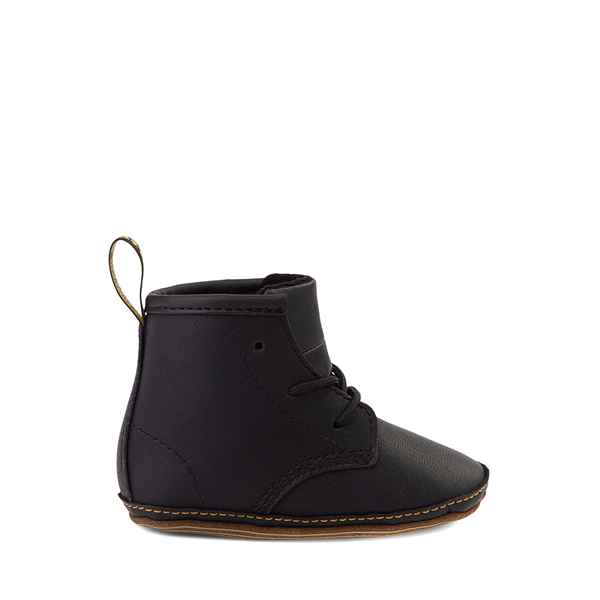
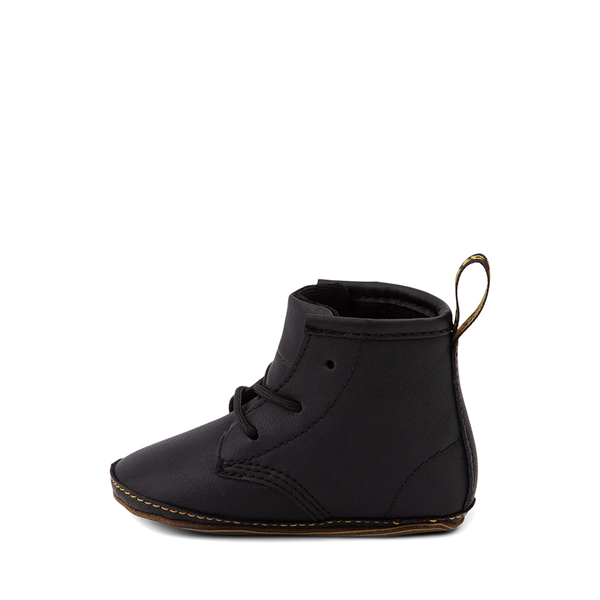
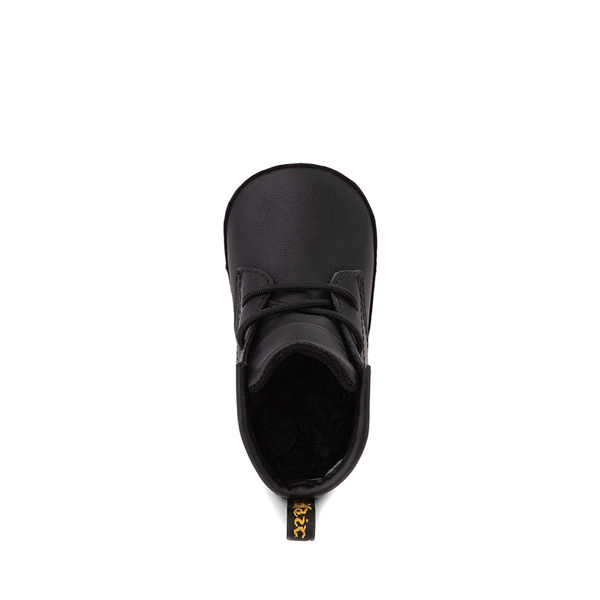
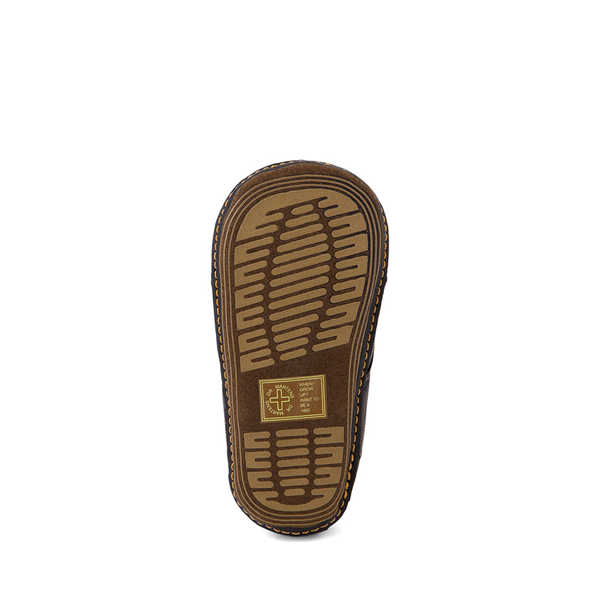
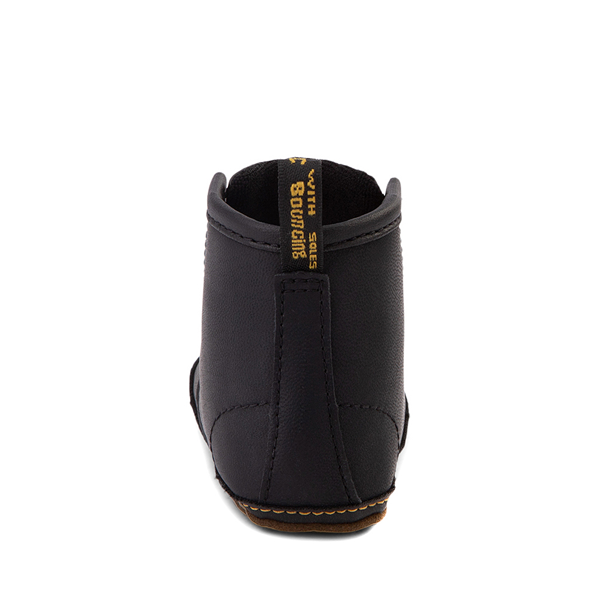
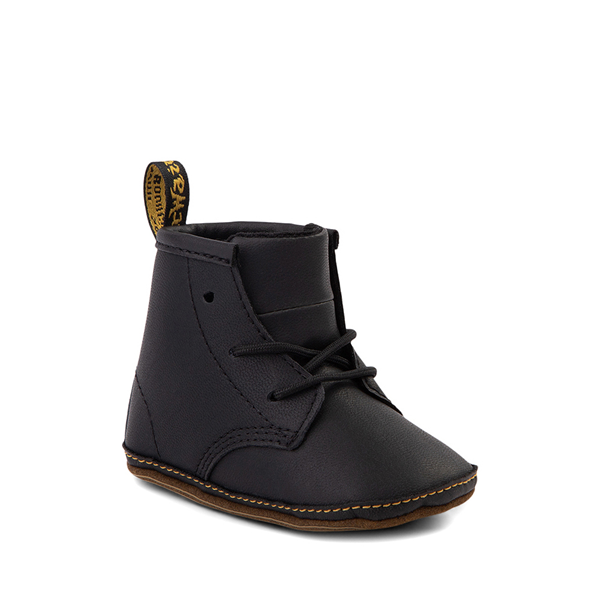
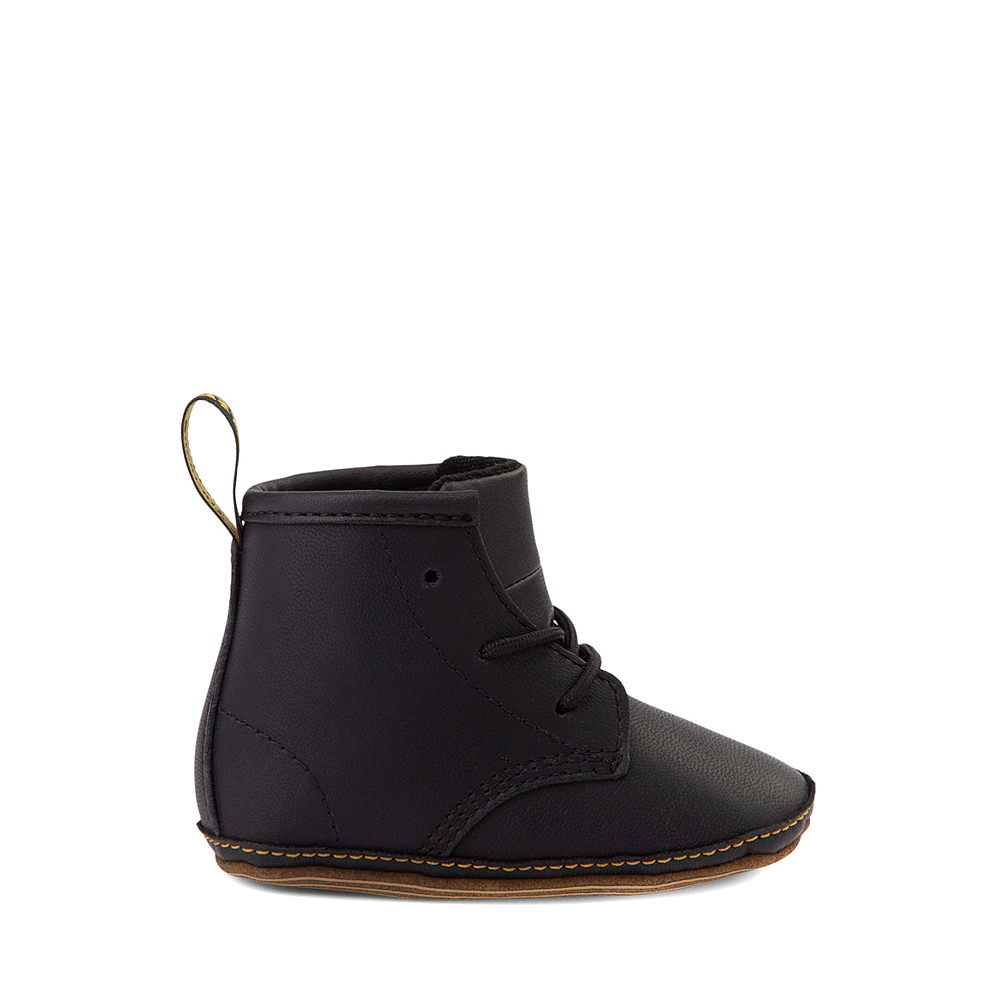
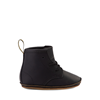

 Size Chart
Size Chart






